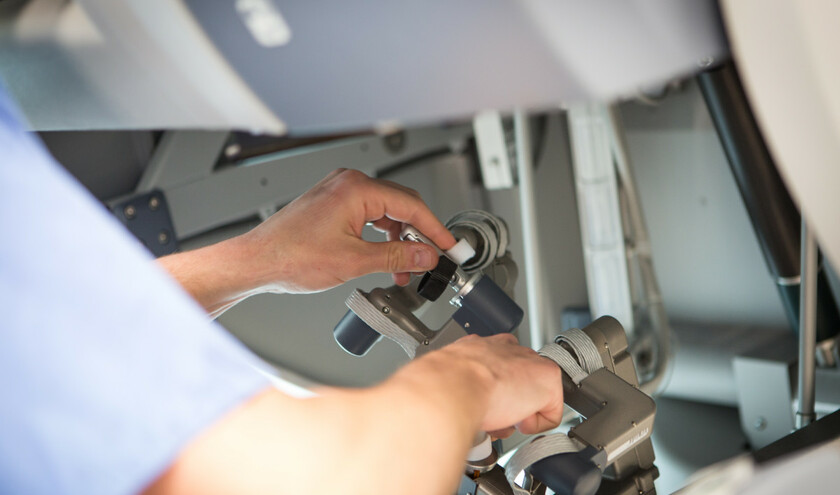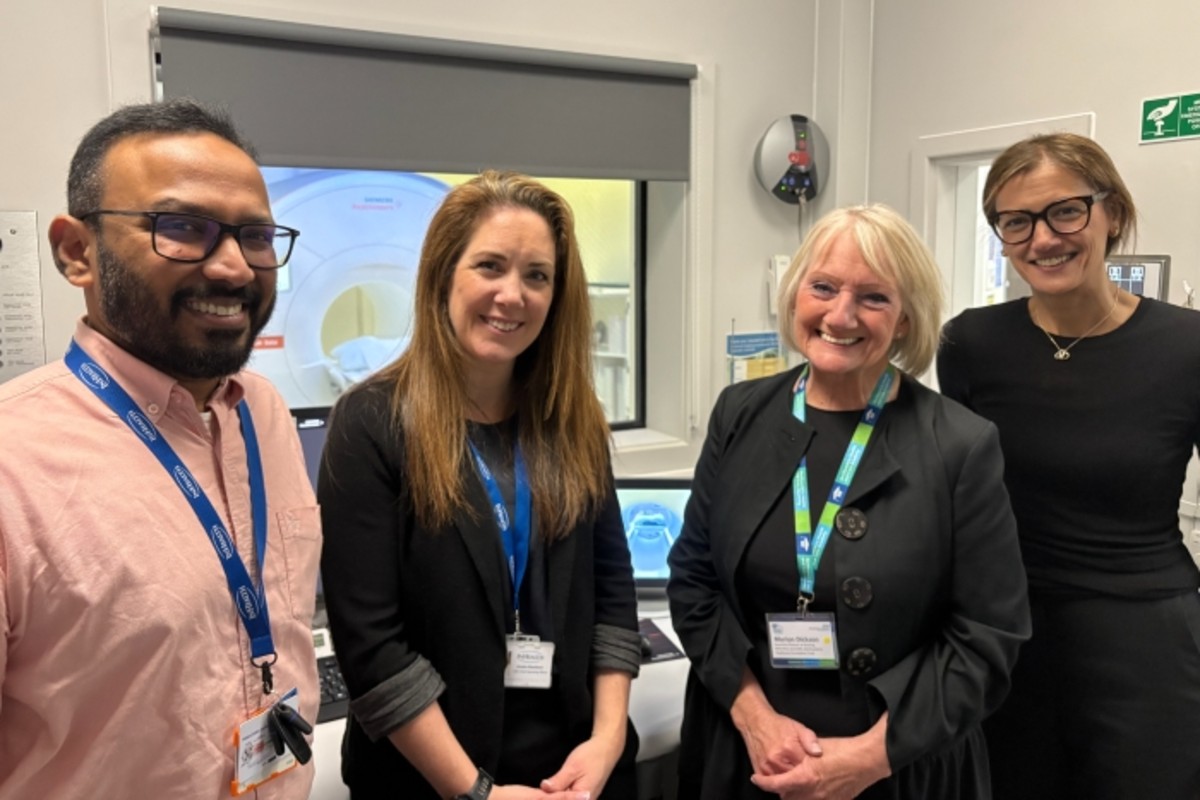North Bristol NHS Trust (NBT) is advanced in robotic surgery, which has been driven by its substantial urology department, urology being at the forefront of the robotic revolution in surgical practice.
Tim Whittlestone, chief medical officer at NBT, explains: ‘We managed to bring in the existing robotic hardware and liaise with the Bristol Robotics Lab – the largest robotics lab in the UK.
‘We were particularly able to work with them in terms of designing and developing instruments that you plug into the da Vinci robot. The tools can spin, turn and articulate. We have designed a tool with haptic feedback which allows surgeons to feel around a patient.'
Patient volume increased in urology and the trust had to invest in more robots, at the same time as other specialties came on board.
Machine learning
The trust isn't stopping at robots and is now introducing machine learning in terms of diagnostics. It is engaging in trials of machine learning mammograms, MRI scans for prostate cancer, and teledermatology to determine whether a skin lesion is cancerous.
Whittlestone says: ‘There is a lot of cynicism and concern around using this technology and I can understand it because we are now giving a computer with an AI algorithm the ability to diagnose patients. I think the concern is what if it gets it wrong and secondly, what about the people that have trained to do this – what role is there for them in the future?
‘At first, I shared that cynicism and watched with interest, but I am now absolutely convinced these machines are more accurate than trained doctors because they don't make mistakes as often.'
He believes robotics will mean the NHS will have to work differently in all branches of medicine.
‘The x-ray can be read by the machine, maybe the doctor's skill is to relay that information to the patient, explain what it means and talk about the diagnosis rather than simply reporting it,' he explains.
‘It should be reassuring to doctors and nurses that they have a very strong future – we're not going to replace people with machines and robots, we're just going to free up their time for them to do what they want to do, which is care.
‘It is allowing us to manage diagnostics and waiting lists a lot better.'
Gadgets
The third area of technology that the trust is working on is gadgets and tools to make life easier.
Whittlestone says: ‘We are working on a project now where a doctor wears a headset, which uses AI speech recognition. It will, with 100% accuracy, listen to everything a doctor is saying to a patient and it will take that and will form a clinical record and use that information to write a letter to the GP instantly and send it, and order follow up tests in real time.
‘It is an amazing development for clinicians because it frees up time, perhaps makes them more efficient, saves money, and allows them to spend more time with their patients.'
Pattern recognition
Whittlestone believes pattern recognition could make a real difference. ‘We are working on an algorithm that will help us to predict the number of patients that will need to be admitted to our hospital minute-by-minute,' he says.
‘If we look through enough historical records we can start to do that. If we overlay the data, we can start to see that patterns emerge, then we can be prepared.
‘I think there is emerging evidence that pattern recognition can completely flip healthcare from reacting to illness to predicting illness. Pattern recognition is going to change medicine. Is there a time for intervention much, much earlier so the patient doesn't develop the disease?'
Robot weekends
The trust is also coming up with innovative ways of showcasing the benefits of its technology. Last November it did a gynaecological robotic hit weekend, completing 24 cases over two days, with two surgeons, two theatre teams and two robotic surgery systems. As a result, 17 patients went home the same day.
Dr Jessica Preshaw, consultant gynaecology surgeon at NBT, finds it hard to hide her love of her robot: ‘It gives surgeons an extra arm so you need fewer people in theatre. The robot lifts up the abdominal wall which means that you can operate at lower pressures so from an anaesthetic perspective it's kinder and it also means patients have less pain post-operatively.
‘Personally, I am a faster surgeon on a robotic console. If you are quicker you can do more surgical activity on a list, which is a real game changer.
‘We have more day case activity, which is fabulous for patients, because they have a quicker recovery. It means better flow for the hospital because we are not using up our hospital beds. We have fewer complications on a robot, less blood loss, fewer readmissions.'
She concludes: ‘I've operated for hours conventionally and you finish and your shoulders and back ache. That doesn't happen. It's kinder on your body, if that relates to a prolonged surgical life expectancy, who knows?'



